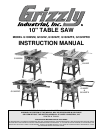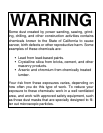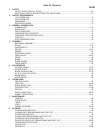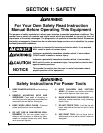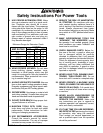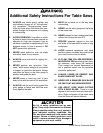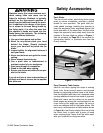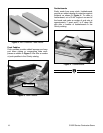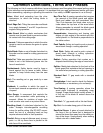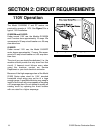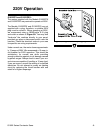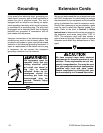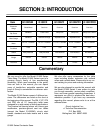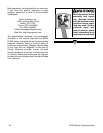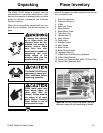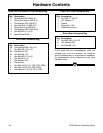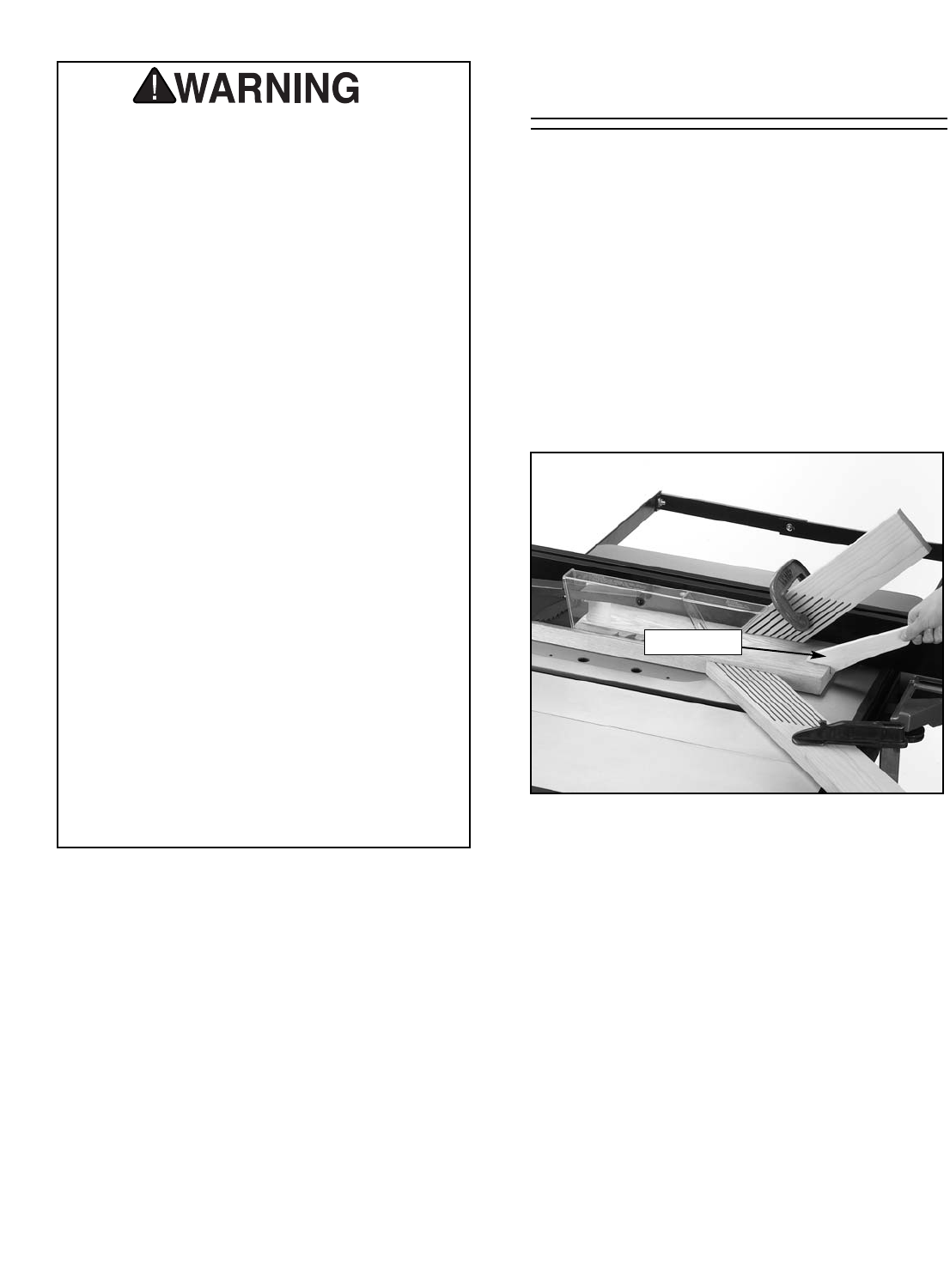
G1022 Series Contractor Saws -5-
Push Sticks
The use of push sticks, particularly when cutting
small or narrow workpieces, provides a double
benefit for saw operators. The push stick pro-
vides added leverage, enabling the operator to
keep the workpiece firmly supported against the
fence and table. At the same time, the push stick
keeps the operator’s hand safely away from the
rotation of the saw blade as shown in Figure 1.
See the template on Page 62 of the manual for
construction details, or purchase one from the
Grizzly catalog.
Zero Clearance Table Inserts
Ideal for use when ripping thin strips or making
bevel cuts, these prevent tearout and jammed
blades by supporting material close to the blade.
Use the standard table insert as a template when
creating additional inserts from wood or plywood.
Blade slot inserts can be custom cut for specific
blade angles by raising the running blade into an
uncut insert at the angle you desire. Be sure to
make an additional slot for the blade splitter. We
also carry a wide selection of table inserts shown
in Figure 2 in the Grizzly catalog. Be sure to hold
the insert firmly in place with a piece of wood
when creating slots. Never hold the table insert
with your hand while cutting new slots.
Safety Accessories
Statistics prove that most common acci-
dents among table saw users can be
linked to kickback. Kickback is typically
defined as the high-speed expulsion of
stock from the table saw toward its opera-
tor. In addition to the danger of the opera-
tor or others in the area being struck by
the flying stock, it is often the case that
the operator’s hands are forced into the
blade during the kickback. The following
can help minimize kickbacks.
1. Use your blade guard and splitter.
2. Never for any reason place your hand
behind the blade. Should kickback
occur, your hand will be pulled into the
blade.
3. Inspect splitter for alignment between it
and your blade.
4. Never use the fence as a guide for cross-
cutting.
5. Never attempt freehand cuts.
6. Use a push stick or featherboard to
maintain control of your workpiece.
7. Feed cuts through to completion.
8. Stand to the side when ripping.
9. Ensure your fence and miter slot are par-
allel to the blade.
If you do not have a clear understanding of
kickback and how it occurs, do not operate
this table saw.
Figure 1. Push Stick.
Push Stick



